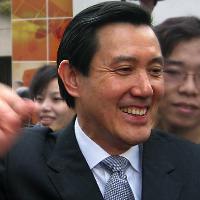The victory of Nationalist Party (KMT) candidate Ma Ying-jeou in Saturday's presidential elections in Taiwan has been greeted with much behind-the-scenes rejoicing among Chinese and American policymakers. Chinese leaders likely worried that their harsh crackdown in Tibet could have sparked a backlash in Taiwan, decreasing support for Ma, who was seen as more open to cooperating with Beijing than his opponent, Frank Hsieh Chang-ting. Hsieh is a former prime minister who belongs to the same political party, the Democratic Progressive Party (DPP), as President Chen Shui-bian. Taiwan's constitution had prohibited Chen from seeking a third consecutive four-year presidential term. Ma won a resounding 58 percent of the votes, the largest margin thus far in four Taiwanese presidential elections. Approximately three-fourth's of the island's 17 million eligible voters cast ballots. During the campaign, Ma emphasized the need to revive the Taiwanese economy, which has been lagging behind that of many of its more dynamic neighbors, above all that of the People's Republic of China (PRC). Ma advocated expanding social and economic ties with the Chinese mainland, including restoring direct communications, postal service and other commercial links that have atrophied under Chen.
Beijing and Washington Relieved at Taiwanese Election Results

